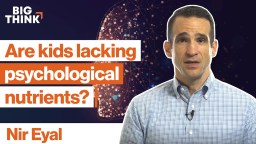Health
All Stories
Health care professionals worldwide are facing a second crisis, the consequences of which we’re only beginning to understand.
A clip of this disingenuous documentary is making the rounds.
Is the cult of youth what we really want trailing us into the afterlife?
Most homes are using insufficient methods to determine when chicken is done cooking and safe to eat.
Researchers at the University of Copenhagen might have discovered a cure.
Your morning coffee is good for you – if you drink it at the right time.
Apps that warn about close contact with COVID-19 cases can help relax social distancing rules.
Combining two fabrics is the best way to filter out infectious coronavirus particles according to a new study.
An antibody produced by llamas seems particularly effective at neutralizing a key protein of the novel coronavirus.
One woman’s viral roadmap from fear to learning to growth.
A thorough understanding of anxious personality traits could lead to targeted therapies.
The key to raising indistractable kids is to first determine why they’re distracted.
▸
4 min
—
with
Sheltering at home is anti-instinctual behavior. Yet doing so saves lives.
Prior to COVID-19, 45% of people with intellectual disabilities reported feeling lonely.
With the right technology, we can continue to “flatten the curve,” even as we venture out of our homes.
According to researchers at Washington State University, the answer is yes.
An overabundance of this particular protein make mice anxious and is found in human OCD patients.
If confirmed, that’s 10 times the official number of infected New Yorkers.
Human-challenge trials are not without risk, but they could speed up the process.
If a patient requires a ventilator, a new study finds they have a low chance of survival.
Men take longer to clear COVID-19 from their systems; a male-only coronavirus repository may be why.
Humans are woefully unaware of their olfactory sense. That’s the reality we’ve been sold.
A bipartisan group of economists, technology and public health experts, and ethicists developed a three-part plan to swiftly and safely reopen the American economy. Could it work?
A new study on rats suggests that using marijuana as an adolescent “reprograms the initial behavioral, molecular, and epigenetic response to cocaine.”
Two new studies shed light on the road ahead.
This unsettling simulation shows how mucus-mist can rapidly spread in a grocery store.
The changes in brain structure aren’t the only bodily changes caused by zero gravity.
Thankfully, there are ways to combat mental and physical fatigue, even in isolation.
In his new book, “The Wedge,” Scott Carney tests the boundaries of human resilience.
A recent clinical trial in Brazil highlights the dangers of two potential COVID-19 treatments: chloroquine and hydroxychloroquine.





























